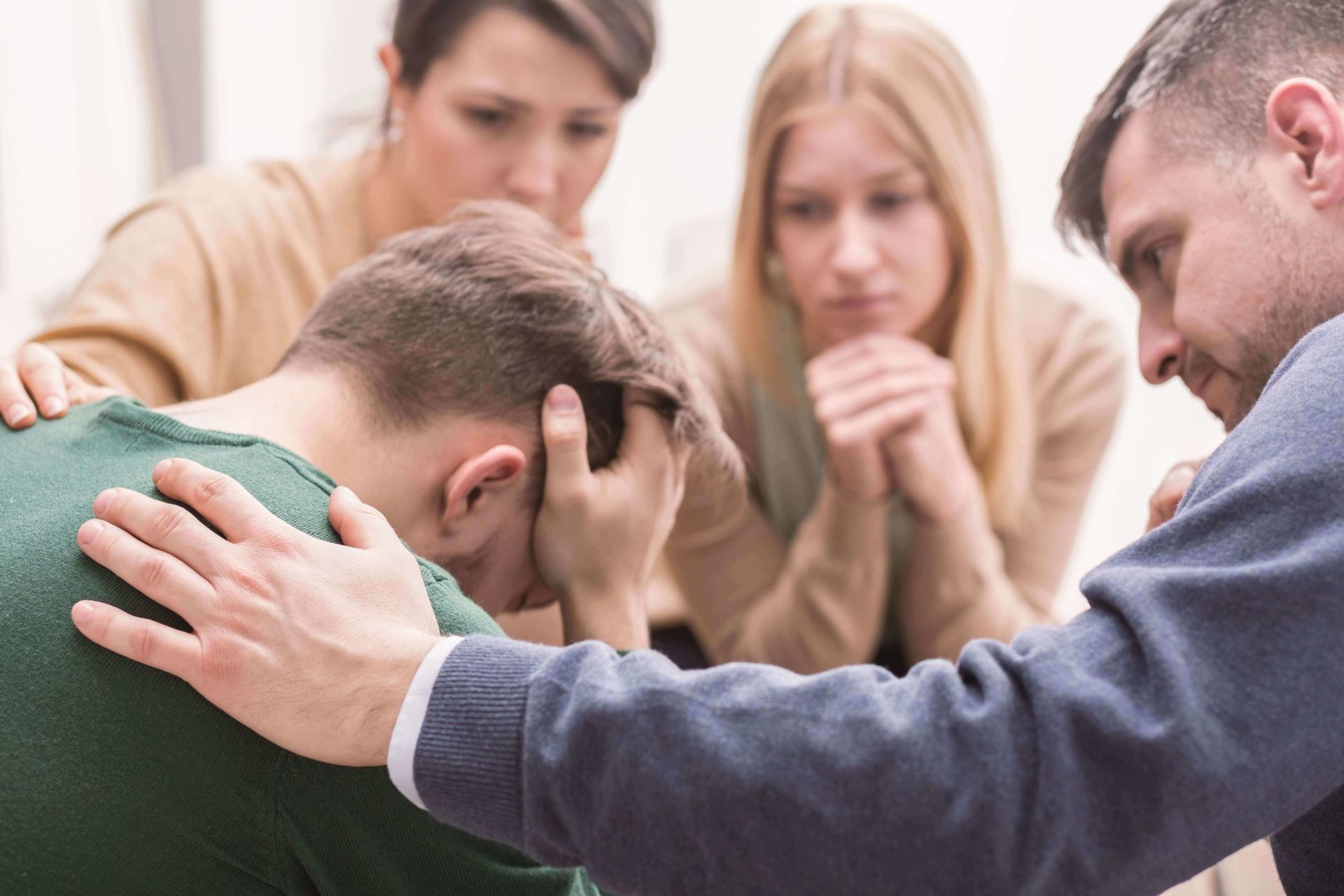Explore Our Blog
Setting Boundaries with Addicted Loved Ones
Advance Minds Blog
A safe space to explore subjects within the community such as mental health, substance abuse and personal identity.
Our safe space also provides the opportunity for real individuals to express their hardships and success through writing.
Protecting your peace while supporting someone in Recovery, loving someone with an addiction can be emotionally exhausting.

You may feel torn between helping them and protecting yourself. Boundaries are not punishments —
they are acts of love for both you and them.
They help you stay emotionally safe, reduce enabling behaviors, and encourage accountability for the person struggling.
Without boundaries, relationships often fall into chaos, resentment, and burnout.
With them, you create the structure necessary for healing and trust to grow.
🧱 What Are Boundaries?
Boundaries are clear statements of what you will and will not tolerate, along with the consequences for crossing those lines.
They are about your behavior, not controlling theirs.
For example:
“I’m happy to talk when you’re sober, but I will leave the conversation if you are under the influence.”
Or
“I will not give you money, but I can help you find a treatment program.”
Boundaries are not about threats or ultimatums.
They are calm, consistent, and enforceable limits that protect your emotional and physical well-being.
⚠️ Signs You Need Boundaries
- You feel constantly drained, anxious, or fearful around them.
- You find yourself lying or covering up their behavior.
- You say “yes” when you want to say “no.”
- You feel guilty for putting yourself first.
- You are doing more for them than they’re willing to do for themselves.
🛠 How to Set Healthy Boundaries
🗣️ Be Clear and Direct
Don’t hint or hope they’ll figure it out.
Clearly state your limits in a calm, firm voice.
🧍♂️ Stay Consistent
Boundaries only work if you uphold them every time.
If you make exceptions, they lose their power.
💬 Focus on Yourself
Use “I” statements. Say what you will do, not what they must do.
Example:
“I won’t attend events where there’s drug use.”
🪞Expect Pushback
They may get angry, guilt-trip you, or test your limits.
That doesn’t mean you’re doing it wrong — it means the boundaries are working.
💞 Be Compassionate, But Firm
You can love someone and still say no.
You can want them to recover and still protect your peace.
Compassion isn’t about self-sacrifice — it’s about clarity and care.
🧘 What Healthy Boundaries Might Look Like
- “I will not allow drugs or alcohol in my home.” 🏠
- “I am not available for calls after 9 p.m.” 📵
- “If you yell at me, I will leave the conversation.” 🚪
- “I can’t lend you money, but I can help you look for resources.” 💳
- “I will not lie for you or cover up your behavior.” 🚫
💡 Why This Helps Them Too
Though it may feel harsh at first, boundaries give your loved one a chance to face reality and take responsibility for their actions.
They also model what healthy relationships look like — structured, honest, and respectful.
Many people in recovery later say boundaries were the wake-up call they needed.
🌱 Final Thoughts 💭🧩
Setting boundaries is one of the hardest — and kindest — things you can do when loving someone with an addiction.
It doesn’t mean giving up on them. It means not giving up on yourself.
You are allowed to protect your peace.
You are allowed to step back when things become unsafe.
And you are allowed to love someone without losing yourself in the process.

















